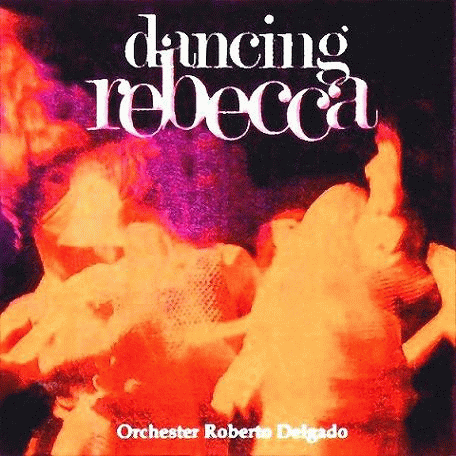激动社区 爱乐之城 · 聆听一辑欧美纯音欧美纯音-Mp3区(VIP) [27/8/2009]【轻音乐】德国Roberto Delgado乐团1968年《Dancing Rebecca》

 |
[27/8/2009]【轻音乐】德国Roberto Delgado乐团1968年《Dancing Rebecca》
|
||||

|
|
- · [align=center][table=100,blue][tr][td][table=100,y ( blue_love 发表于 2009/8/27 15:57:00)
- · 有拉斯特的风格!感谢分享! ( pantiejun 发表于 2009/8/27 16:15:00)
- · 感谢分享{8/57} {8/57} ( abbajk 发表于 2009/8/27 16:38:00)
- · 感谢分享! ( wecwec 发表于 2009/8/27 17:31:00)
- · 感谢分享! ( 古老的大鐘 发表于 2010/7/1 10:27:00)
- · 感谢分享 ( msxj 发表于 2009/8/27 17:45:00)
- · 谢谢分享,好音乐 ( lin1772 发表于 2009/8/27 18:03:00)
- · 谢谢blue_love 斑斑的分享 ( qingling 发表于 2009/8/27 18:53:00)
- · 也祝兰斑快乐! ( tzdongnian 发表于 2009/8/27 19:34:00)
- · 太好了我喜欢 ( lxgwxllx2 发表于 2009/8/27 19:48:00)
- · 蛮好听的舞曲轻音乐,欢快 活泼 怀旧 ( e213 发表于 2009/8/27 22:15:00)
- · 共享美韵 谢谢 辛苦了{8/63} {8/63} ( qaz464947974 发表于 2009/8/27 23:11:00)
- · 共享美韵 谢谢 辛苦了{8/63} {8/63} ( qaz464947974 发表于 2009/8/27 23:12:00)
- · 谢谢分享节奏欢快的打击乐 ( zdy228 发表于 2009/8/27 23:18:00)
- · 感谢分享!{8/57} ( chinaaster 发表于 2009/8/28 0:23:00)
- · 感谢分享 ( khwang2000 发表于 2009/8/28 1:50:00)
- · 感谢分享! ( tonyabctonyabc 发表于 2009/8/28 2:35:00)
- · 谢谢分享!!! ( dwdmwy 发表于 2009/8/28 3:21:00)
- · 魅力十足的音乐 正中下怀 感谢你热心分享 ( cmkykae 发表于 2009/8/28 6:15:00)
- · 谢谢blue_love斑斑分享 ! ( 哲夫 发表于 2009/8/28 7:40:00)
- · 感谢楼主分享 ( tonelll 发表于 2009/8/28 10:55:00)
- · 谢谢分享 {8/14} ( leeii 发表于 2009/8/31 19:44:00)
- · 感谢分享! ( ctcty 发表于 2009/9/3 20:21:00)
- · 感谢分享 ( sailling 发表于 2009/9/5 9:23:00)
- · 谢谢分享 ( guwx 发表于 2009/9/25 8:38:00)
- · 谢谢分享,好音乐 ( slllll2001 发表于 2009/9/27 12:25:00)
- · 难得欣赏到如此轻松优雅的轻音乐。 ( jxkang301 发表于 2009/10/5 22:23:00)
- · 拉斯特式的风格!感谢分享! ( df24000 发表于 2009/10/10 10:34:00)
- · 拉丁风格!谢谢分享好心情!!!{8/13} ( wzh851 发表于 2009/10/13 16:55:00)
- · 感谢分享! ( saygi 发表于 2009/10/26 0:13:00)
- · 感谢分享 ( hnyyxyh2008 发表于 2009/10/31 19:08:00)
- · xiexie分享! ( 布衣殊伦 发表于 2009/11/21 10:35:00)
- · 感谢版主分享! ( erisetch 发表于 2009/11/27 13:39:00)
- · 感谢楼主分享!! ( aquaria 发表于 2009/12/12 2:35:00)
- · 谢谢分享 ( zzjohn 发表于 2009/12/19 13:07:00)
- · 谢谢版主分享! ( tiancr 发表于 2010/2/6 0:16:00)
- · 好听得很的音乐,喜欢的啊。谢谢分享! ( zhuguang626 发表于 2010/2/6 13:59:00)
- · 感谢版主分享! ( chengho 发表于 2010/2/6 23:56:00)
- · 美妙的音乐 经典.{8/13} ( fs1919 发表于 2010/2/19 15:09:00)
- · 谢谢分享!!! ( htyx 发表于 2010/3/14 22:00:00)
- · 谢谢blue_love 斑斑 ( datoulee 发表于 2010/4/10 13:47:00)
- · 30年前的东西 可以保留下来 佩服佩服 ( likerhino 发表于 2010/5/14 11:21:00)
- · 谢谢!谢谢!!!非常喜欢 ( wwaltz 发表于 2010/6/23 17:58:00)
- · 太喜欢了 谢谢 ( bg4apl 发表于 2010/6/24 14:42:00)
- · 世界三大轻音乐团介绍的挺好,应该附上几首好听的乐曲,让大家欣赏欣赏。 ( 将欲望扼杀在 发表于 2010/6/24 20:59:00)
- · 世界三大轻音乐团介绍的挺好,应该附上几首好听的乐曲,让大家欣赏欣赏。 ( 想家的公主 发表于 2010/6/24 23:16:00)
- · 世界三大轻音乐团介绍的挺好,应该附上几首好听的乐曲,让大家欣赏欣赏。 ( 薇完呆蓄 发表于 2010/6/25 1:15:00)
- · 谢谢分享 ( woyaoxunba 发表于 2010/6/26 10:23:00)
- · thanks a lot ( chrismao 发表于 2010/9/30 8:32:00)
- · 非常感谢分享。{8/70} {8/72} ( 何华2010 发表于 2010/10/24 20:58:00)
- · 谢谢蓝管分享! ( shousei 发表于 2010/11/2 21:26:00)
- · 不错的专辑,珍藏。 ( gsqf 发表于 2010/11/4 7:36:00)
- · 继续欣赏{8/54} ( hirte 发表于 2010/11/11 15:04:00)
- · 謝謝分享這麼好的音樂。 ( libiana 发表于 2010/12/1 20:12:00)
- · {8/57} {8/57} {8/57} ( xmy 发表于 2011/3/20 11:19:00)
- · 感谢分享 ( liasx 发表于 2011/4/25 23:00:00)
- · 感谢楼主的提供。 ( liuweiming 发表于 2011/4/27 14:11:00)
- · 轻松、欢快 、活泼,很好听 ,很喜欢! ( lvyunzhuyun 发表于 2011/6/4 21:23:00)
- · 衷心感谢!{8/57} {8/57} {8/57} {8/54} {8/54} {8/54} {8/ ( hymodel 发表于 2013/7/18 9:59:00)
Copyright @ 2004-2025 www.52jdyy.com 激动社区 - 陪你一起慢慢变老!


 blue_love
blue_love









